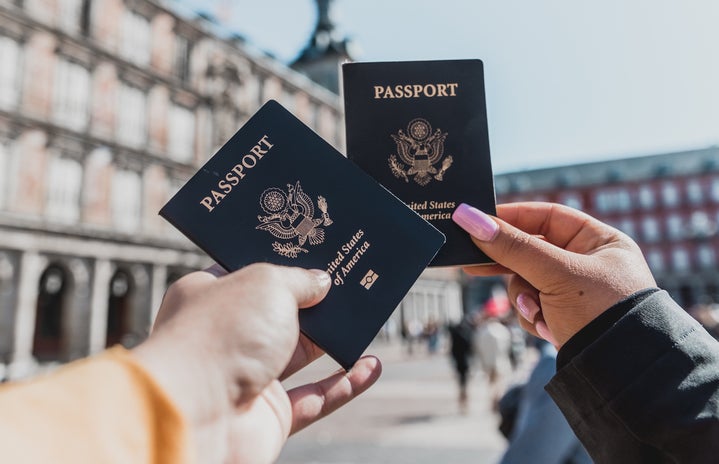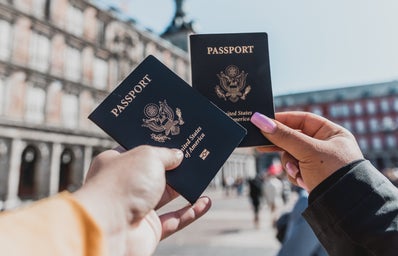Studying abroad is one of the most exciting and rewarding experiences you can embark on during your college years. It’s a chance to immerse yourself in a new culture, gain global perspectives, and push yourself beyond your comfort zone. Whether you’re learning a new language, making friends from around the world, or navigating the streets of a foreign city, each step is a learning opportunity. The process might seem overwhelming at first—researching programs, filling out applications, and securing finances—but with the right preparation and mindset, it’s all possible. Remember that human nature is to adapt and grow, and that this experience is not only an opportunity to grow as a student, but more so as a person.
The first step to starting your study abroad journey is, of course, applying. At UPRRP, you must attend two orientations. The first one takes place at the beginning of the semesters, and it informs you of the program and destinations they offer, including prices and living arrangements. The second orientation is where you will discuss what to do before you leave, what to do and expect when you arrive, and the process of reintegration to campus when you come back. Keep in mind that there are separate orientations for every program, which are ISEP, Convenios Bilaterales, NSE, and MICEFA.
First, let’s look at the general requirements for every program:
- You must be a full time student and have 36 approved credits
- GPA of 2.75
- Have academic progression
- You can’t have incompletes the semester prior to going abroad
- You can’t be on probation
- Can’t have debt with the university
- Meet the language requirements needed
To give you an idea of what orientations to attend, let’s talk programs:
ISEP- International Student Exchange Program:
This program has two roads to go down on: ISEP Exchange and ISEP Direct. Exchange involves reciprocal exchanges between two international universities affiliated with the program. You can study at ISEP consortium universities while paying your tuition at the Río Piedras Campus and benefiting from plans that include accommodation and meals. Meanwhile, Direct allows the admission of a student without requiring reciprocity. However, you would have to pay the tuition, accommodation, and meals according to the costs established by the partnership. The great thing about ISEP Exchange and Direct is that you can apply to at least one country in every region of the world. Find more info at: https://www.isepstudyabroad.org/
Convenios Bilaterales or Bilateral Agreements:
First off, an added requirement for this program is that it is mandatory to have completed nine (9) credits in a foreign language for agreements involving instruction in a language other than Spanish or English. I would say this is the most straightforward way to study abroad from UPRRP, the only difference would pertain to the payment of your classes, seeing as in some universities you would pay to the host institution, but with most programs you would pay the established UPRRP price.
MICEFA- Interuniversity Mission for Franco-American Exchange Coordination
Understandably, this program requires you to have completed nine (9) credits in the French language at the time of application. With MICEFA, all of the agreements with France are paid at UPR-Río Piedras.
NSE- National Student Exchange Program
NSE includes approximately two hundred (200) recognized universities and colleges in the United States, Canada, Guam, Puerto Rico, and the U.S. Virgin Islands.
After attending the orientation, you will contact the International Relations Office through email and they will send you the application, for which you will have around a month to complete. In this application, you will need to submit a brief essay explaining why you want to study abroad, and two recommendation letters from professors. You will also need to pay a sum of around $175, a credit transcript, a 2×2 photo, an academic projection (that I will explain below), and a language proficiency, if it’s applicable.
The process that ensures you take classes that will be validated at UPRRP is a process called ACOI, or “Authorization to Take Courses at Other Institutions,” for which the preliminary process is academic projection. The easiest way to do this is by taking classes that are already validated; you can find those classes here. In the case that you want to take classes that are not yet approved, you may print out or send the syllabus or syllabi of the class(es) to the dean of the corresponding department. They will evaluate and let you know whether the class will count as a general class, core class, major class, elective, or seminar. You will later do the final part of the ACOI process when you arrive at your host university.
After submitting your application, you will start the tedious process of finding where to live. I can speak from my experience applying for Madrid/Seville. Great resources are idealista, fotocasa, and the consulate or embassy of the country you are traveling to.
Speaking of consulates and embassies, let’s talk about visas. Like everything I’ve previously mentioned, it will vary depending on the country you are planning on going to. Broad advice I can give is to get the necessary documents as soon as you possibly can. Be in constant contact with the consulate or embassy if you have any questions, because legal matters such as the visa shouldn’t have any room for doubt. Remember, if you were born in Puerto Rico, you likely have the United States citizenship, and will not need a visa to study in a US university.
As far as flights go, your best bet is buying your departure and return flights, because if you buy two departing flights, it is likely to be more expensive. If you are leaving US territory, remember that you have to open a foreign bank account and have to buy a sim card or an inexpensive local phone. And, for the love of what you believe in, digitize EVERYTHING and make multiple copies. No matter where you are headed, prepare a monthly budget that includes: rent, food, utilities, transportation, materials, and medical and travel insurance; as well as personal expenses like: clothes, toiletries, entertainment, emergency fund, currency exchange fees, and transportation within the country, continent, etc. Finally, remember to stay very mindful, very demure when packing. I promise you don’t need the 50+ books you own (Yes, I am writing this as a personal reminder and with full intentions to buy an ungodly amount of books when I am abroad).
In conclusion, embarking on a study abroad journey at UPRRP requires thorough preparation and a clear understanding of the steps involved. Try to stay organized and proactive, and don’t give up when inevitable bumps in the road occur. Remember that studying abroad is a privilege that not many people get to have so get through applying and get ready to have the experience of a lifetime!


